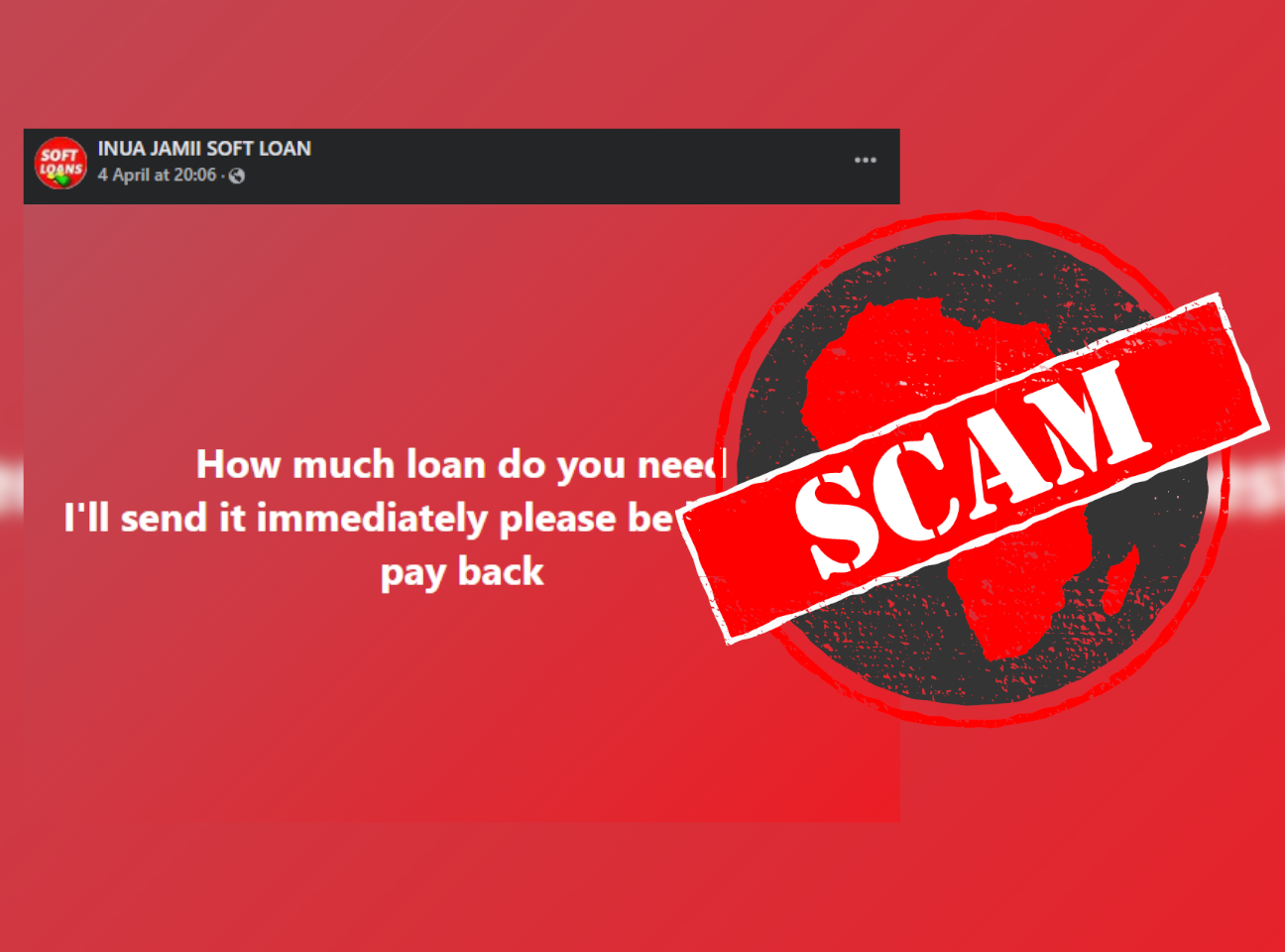IN SHORT: Inua Jamii is a Kenyan government programme that gives cash grants to poor and vulnerable people. But it does not offer loans, as this page claims.
The Facebook page INUA JAMII SOFT LOAN claims to be offering different loan amounts to Kenyans on Facebook.
The page uses the name of Inua Jamii, the Kenyan government programme that gives cash grants to poor and vulnerable people. “Inua Jamii” is a Kiswahili phrase that means “uplift the community”.
One of the page’s posts, dated 4 April 2024, reads: “How much loan do you need I'll send it immediately please be honest to pay back.”
The page has posted the loan offers here, here, here, here, here, here, here, here, here and here.
But are the offers legit? We checked.

Signs of a scam
There are several clues that the Facebook page and its offers are fake.
We noticed that it is not linked to the website of the Ministry of Labour and Social Protection, which administers the Inua Jamii grants. This is the first indication that it might be fake. Government social media pages are usually linked to functioning websites where citizens can transact and enquire about government services.
The page was created under the “entrepreneur” category on Facebook. A genuine government page would normally be under the “government organisation” category. We also noticed that the contact number listed on the page does not appear on the social protection ministry’s website.
In the Facebook “Intro” section, the page described the loans as “mama taifa soft loan”. “Mama taifa” is a Kiswahili term for “first lady”. This is probably an attempt to impersonate Kenya's first lady, Rachel Ruto. But we found no loan adverts on her official Facebook page.
The Inua Jamii programme has repeatedly stated that it provides cash grants, not loans. Even the programme's official Facebook page does not post loan offers.
To help protect yourself against online fraudsters, see Africa Check’s guide to Facebook scams and how to spot them.
Republish our content for free
For publishers: what to do if your post is rated false
A fact-checker has rated your Facebook or Instagram post as “false”, “altered”, “partly false” or “missing context”. This could have serious consequences. What do you do?
Click on our guide for the steps you should follow.
Publishers guideAfrica Check teams up with Facebook
Africa Check is a partner in Meta's third-party fact-checking programme to help stop the spread of false information on social media.
The content we rate as “false” will be downgraded on Facebook and Instagram. This means fewer people will see it.
You can also help identify false information on Facebook. This guide explains how.




Add new comment